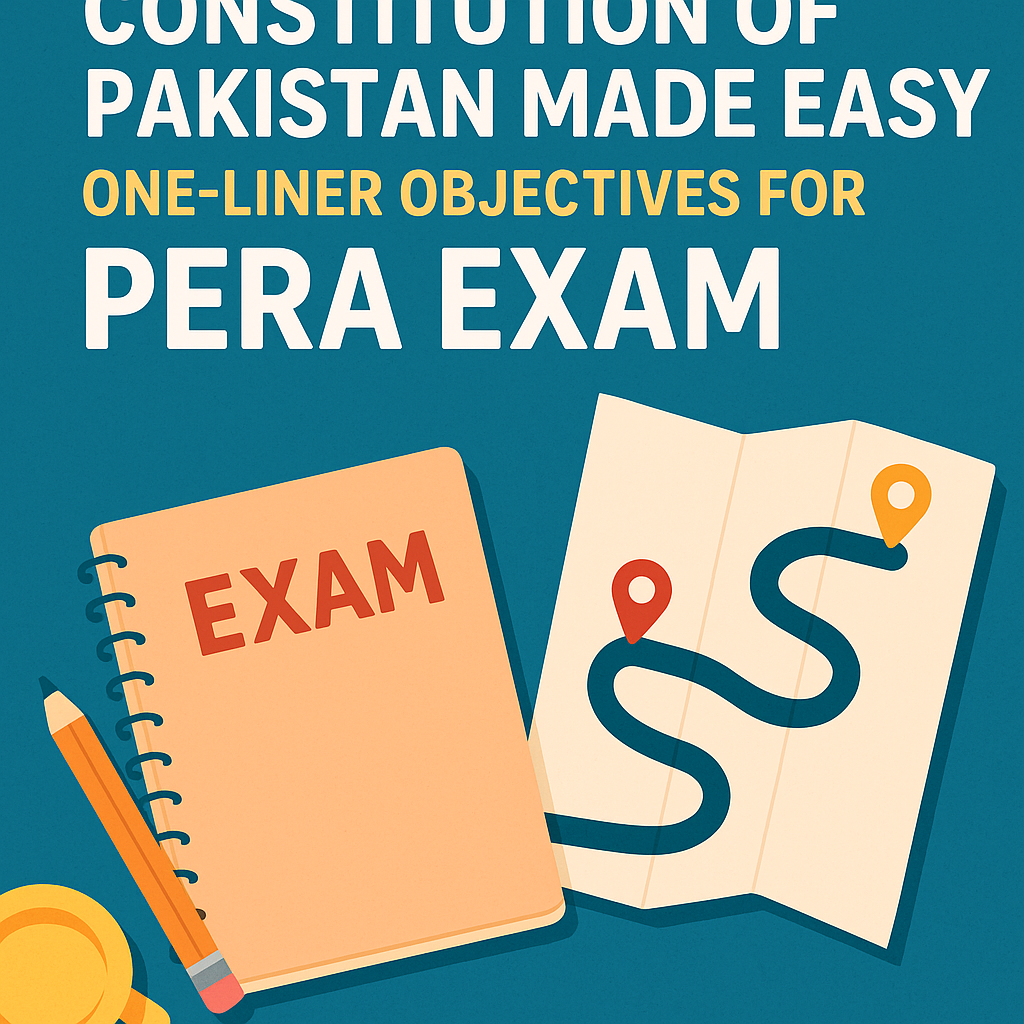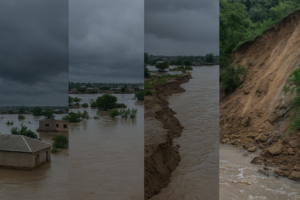Articles 1–10
- Article 1 defines the territories of Pakistan.
- Pakistan consists of four provinces, Islamabad Capital Territory, and other territories included by law.
- Article 2 declares Islam as the State religion of Pakistan.
- Article 2A makes the Objectives Resolution a substantive part of the Constitution.
- Article 3 ensures elimination of exploitation.
- Article 4 guarantees the right of individuals to be dealt with in accordance with law.
- Article 5 binds every citizen to show loyalty to the State and obedience to the Constitution.
- Article 6 declares abrogation or suspension of the Constitution as high treason.
- Article 7 defines the term “State” including Federal Government, Provincial Governments, and local authorities.
- Article 8 renders laws inconsistent with Fundamental Rights void.
- Article 9 guarantees security of person.
- Article 10 provides safeguards as to arrest and detention.
- Article 10A grants the right to fair trial.
Part VII – The Judicature (Articles 164, 175–212)
14. Article 164 allows High Courts to have benches at different places.
15. Article 175 provides for the establishment of Supreme Court, High Courts, and other courts.
16. The Supreme Court of Pakistan is the highest court of the country.
17. Article 176 states that the number of judges of the Supreme Court shall be determined by the President.
18. Article 177 provides that the Chief Justice and other judges of the Supreme Court are appointed by the President.
19. A Supreme Court judge retires at the age of 65 years.
20. Article 180 allows appointment of an Acting Chief Justice of Pakistan.
21. Article 181 allows appointment of ad-hoc judges in the Supreme Court.
22. Article 182 allows appointment of retired judges as acting judges of the Supreme Court.
23. Article 183 authorizes the Supreme Court to sit in different places as decided by the Chief Justice.
24. Article 184 grants original jurisdiction to the Supreme Court in enforcement of Fundamental Rights.
25. Article 184(3) gives suo moto powers to the Supreme Court.
26. Article 185 provides appellate jurisdiction of the Supreme Court.
27. Article 186 allows the President to seek advisory opinion of the Supreme Court.
28. Article 186A allows the Supreme Court to transfer cases from one High Court to another.
29. Article 187 empowers the Supreme Court to issue orders for doing complete justice.
30. Article 188 gives the Supreme Court power to review its judgments.
31. Article 189 declares that the decisions of the Supreme Court are binding on all other courts.
32. Article 190 makes it obligatory for all executive authorities to act in aid of the Supreme Court.
33. Article 191 allows the Supreme Court to frame rules regulating its practice and procedure.
34. Article 192 provides that each province shall have a High Court.
35. Article 193 provides that High Court judges are appointed by the President after consultation.
36. A High Court judge retires at the age of 62 years.
37. Article 196 allows appointment of additional judges in High Courts.
38. Article 199 empowers High Courts to issue writs.
39. High Court writs include Habeas Corpus, Mandamus, Prohibition, Certiorari, and Quo Warranto.
40. Article 200 deals with transfer of High Court judges.
41. Article 201 declares that decisions of High Courts are binding on subordinate courts.
42. Article 202 allows a High Court to frame rules regulating its practice and procedure.
43. Article 203 establishes the Federal Shariat Court.
44. Federal Shariat Court consists of 8 judges including 3 Ulema judges.
45. Article 203D empowers Federal Shariat Court to examine laws in the light of Quran and Sunnah.
46. Article 203F provides that appeals from Federal Shariat Court lie to the Supreme Court Shariat Appellate Bench.
47. Article 209 establishes the Supreme Judicial Council for accountability of judges.
48. Supreme Judicial Council consists of Chief Justice of Pakistan, two senior-most judges of the Supreme Court, and two senior-most Chief Justices of High Courts.
49. Article 210 provides that the President shall appoint a Registrar of the Supreme Court.
50. Article 212 provides for establishment of Administrative Courts and Tribunals.
51. Service Tribunals are established under Article 212 for service matters of civil servants.
📍 English Language Educator | Blogger & Content Strategist | 7+ Years in Educational Blogging
Nosheen Bashir is a dedicated English teacher and experienced blogger with over seven years of expertise in content creation and educational writing. Passionate about language, literature, and effective communication, she combines her teaching experience with blogging skills to create insightful, research-backed content that helps learners and educators alike.
🔹 Expertise & Achievements:
✔ English Language Education: A skilled educator with years of experience in teaching English grammar, literature, and communication skills to students of varying levels.
✔ Educational Blogging: Running a successful blog for 7+ years, delivering well-structured, engaging content on language learning, writing techniques, and academic success.
✔ SEO & Content Strategy: Specializes in creating high-ranking, authoritative articles that follow Google’s EEAT principles, ensuring content that is both informative and search-friendly.
✔ Student-Centric Approach: Committed to making English easier, engaging, and accessible, helping readers and students improve their language proficiency.
🚀 With a passion for teaching and writing, Nosheen Bashir is dedicated to crafting educational content that empowers students, teachers, and language enthusiasts worldwide.




